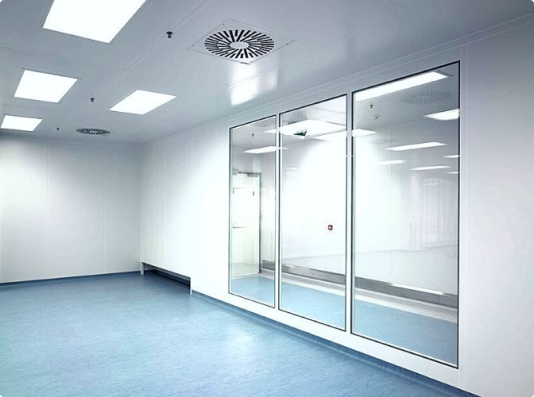In today’s rapidly evolving industries such as pharmaceuticals, biotechnology, healthcare, and electronics, maintaining controlled environments has become essential. However, traditional fixed clean rooms often come with limitations related to space, cost, and flexibility. This is where mobile clean rooms in Australia are redefining the landscape — providing mobility, adaptability, and cost-efficiency without compromising on performance or compliance.
What Is a Mobile Clean Room?
A mobile clean room is a self-contained, transportable structure designed to meet specific ISO or GMP clean room classifications. Built to maintain controlled levels of airborne particles, humidity, and temperature, these units offer the same high standards as permanent clean rooms but with the added advantage of mobility and scalability.
Constructed using modular panels, HEPA filtration systems, HVAC units, and integrated monitoring controls, mobile clean rooms can be quickly deployed on-site for temporary or long-term use. In Australia, industries increasingly adopt them to address project-based needs, remote operations, and emergency contamination control.
Advantages of Mobile Clean Rooms in Australia
1. Flexibility and Mobility
One of the most significant advantages of mobile clean rooms is their portability. These units can be easily relocated across different facilities or project sites, making them ideal for industries that operate in remote areas or need temporary clean room solutions. For example, Australian pharmaceutical research companies and defence contractors often deploy mobile clean rooms for short-term testing and manufacturing operations.
2. Rapid Deployment
Unlike traditional clean rooms that can take months to construct, a mobile clean room can be delivered, installed, and commissioned within weeks. This speed of deployment is crucial for emergency applications, such as pandemic response units or urgent biocontainment facilities.
3. Cost-Effective Solution
Building a conventional clean room involves significant capital expenditure. Mobile clean rooms, on the other hand, provide a cost-effective alternative by eliminating the need for permanent construction. They can be leased or purchased, allowing companies to manage budgets efficiently while maintaining compliance with ISO 14644 and GMP standards.
4. Compliance and Quality Assurance
Modern mobile clean rooms in Australia are designed to meet the most stringent regulatory requirements. Whether for pharmaceutical production, medical device assembly, or microelectronics, these units adhere to international clean room standards. Many providers offer validation and certification services to ensure full compliance with TGA, FDA, and WHO guidelines.
5. Energy Efficiency
Thanks to advanced HVAC and filtration technologies, mobile clean rooms offer high energy efficiency while maintaining stable environmental conditions. They use variable air volume (VAV) systems, low-energy lighting, and automated control panels to optimise energy consumption, supporting Australia’s growing commitment to sustainability.
Applications of Mobile Clean Rooms in Australia
Pharmaceutical and Biotechnology
Pharmaceutical companies rely heavily on clean environments for drug manufacturing, packaging, and research. Mobile clean rooms allow them to expand production capacity or establish temporary labs during clinical trials without major construction.
Healthcare and Hospitals
Hospitals use mobile clean rooms for surgical support, sterile compounding, and infection control. During the COVID-19 pandemic, Australia saw a rise in the use of mobile isolation and testing clean rooms to handle increased healthcare demand safely.
Aerospace and Defence
Australia’s aerospace and defence sectors require clean rooms for precision component manufacturing, satellite assembly, and sensitive electronics production. Mobile clean rooms enable these activities to occur even in remote or temporary project locations.
Electronics and Semiconductor Manufacturing
In semiconductor fabrication and electronics assembly, particulate control is paramount. Mobile clean rooms provide the necessary environment for high-precision tasks, ensuring defect-free production and consistent quality.
Research and Education
Universities and research institutes across Australia use mobile clean rooms for scientific studies, nanotechnology experiments, and training programs. Their versatility allows academic institutions to create custom laboratory environments for specific research objectives.
Key Features of Modern Mobile Clean Rooms
1. Modular Design
Mobile clean rooms use modular wall systems that allow customisation of layout, size, and configuration. These panels are typically made from antimicrobial-coated aluminium, stainless steel, or HPL (High Pressure Laminate) for easy cleaning and durability.
2. Integrated HVAC and Filtration Systems
Each unit features a high-performance HEPA or ULPA filtration system that removes 99.97% of airborne particles. Coupled with precise HVAC controls, it ensures optimal air changes per hour (ACH), pressure differentials, and humidity levels.
3. Real-Time Monitoring
Advanced environmental monitoring systems continuously track parameters such as temperature, humidity, particle count, and air pressure. These can be integrated into digital dashboards for remote supervision and compliance reporting.
4. Customisation Options
Australian clean room providers offer customisation in terms of cleanliness class (ISO 5 to ISO 8), lighting design, airflow type (turbulent or laminar), and equipment integration — allowing complete alignment with operational needs.
5. Easy Maintenance and Upgrades
Maintenance is simplified with accessible filter compartments, modular components, and smart diagnostic alerts. This makes servicing and upgrading mobile clean rooms faster and less disruptive compared to traditional setups.
Why Australian Industries Are Shifting to Mobile Clean Rooms
Australia’s industrial sectors are under constant pressure to innovate while adhering to strict regulatory standards. The adoption of mobile clean rooms is a strategic move to enhance operational agility, reduce downtime, and minimise costs.
Moreover, with increasing focus on remote mining operations, offshore projects, and temporary research facilities, the ability to deploy a clean room anywhere in the country gives businesses a significant advantage. Whether it’s a GMP-certified pharma lab in Melbourne or a mobile research unit in Western Australia, these solutions are transforming how industries manage controlled environments.
Choosing the Right Mobile Clean Room Supplier in Australia
When selecting a supplier, businesses should evaluate several factors:
- Experience and certification in clean room design and validation
- Availability of custom-built or rental units
- Compliance with ISO, GMP, and TGA standards
- Options for maintenance contracts and technical support
- Proven track record in serving Australian industrial sectors
Reputable providers will not only deliver high-quality equipment but also offer turnkey solutions — from design and fabrication to validation and after-sales service.
The Future of Mobile Clean Rooms in Australia
As industries continue to evolve, the demand for modular and mobile clean room systems is set to rise exponentially. The combination of flexibility, cost efficiency, and rapid deployment makes these systems the go-to choice for organisations striving for innovation and compliance.
With advancements in IoT integration, AI-based monitoring, and green energy technologies, the next generation of mobile clean rooms will offer even greater control, sustainability, and intelligence — driving Australia toward a cleaner, safer, and more productive industrial future.



